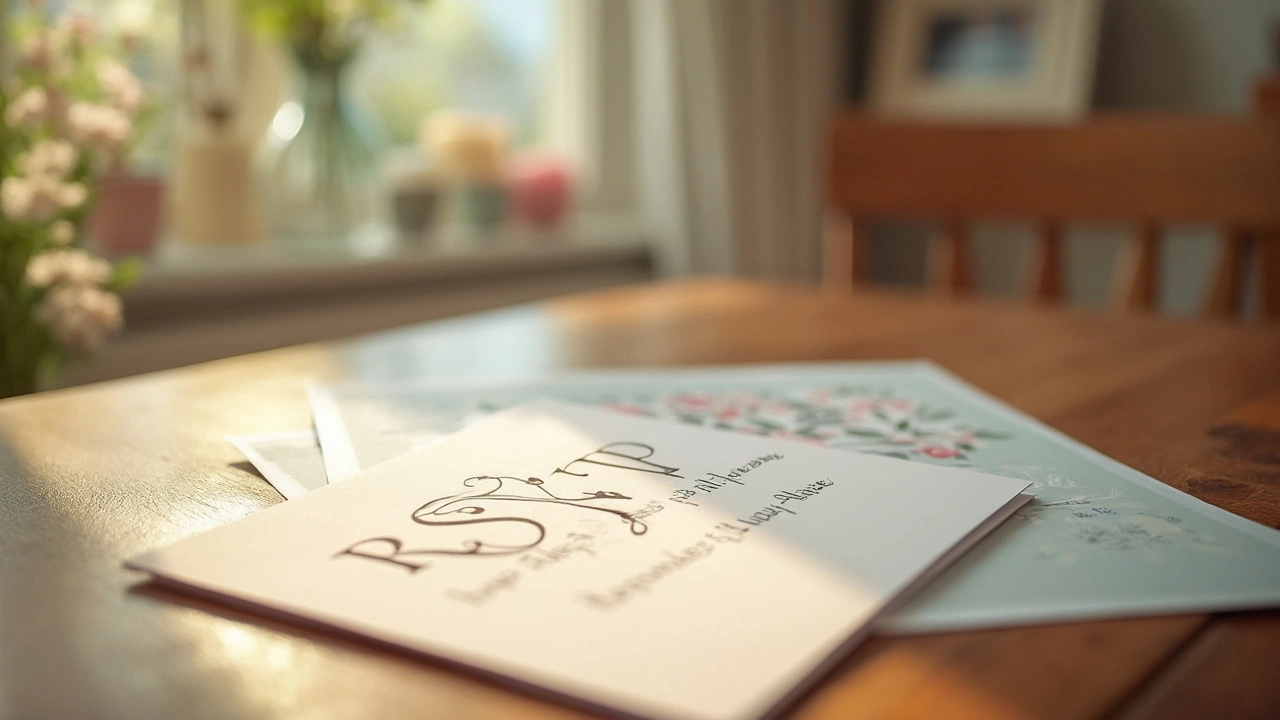Origin of RSVP: History, Meaning & Modern Etiquette
Ever wondered why wedding invites say "RSVP"? The phrase comes from French and has been guiding guest responses for over a century. Knowing where it started helps you respect the tradition and keep your own invitation list tidy.
Where "RSVP" Comes From
RSVP stands for "Répondez s'il vous plaît," which translates to "Please respond." The abbreviation appeared in 19th‑century French society circles, where hosts needed accurate headcounts for elaborate banquets. By the early 1900s the short form crossed the English Channel and became standard on formal invitations.
At that time, catering was expensive and wasteful. A missed response could mean extra plates, unused food, and wasted money. The polite request to answer kept events well‑planned and signaled respect for the host’s effort.
How to Use RSVP Today
Even though weddings look very different now, the RSVP rule still matters. Here’s a quick checklist you can copy into any invite:
- Give a clear deadline (usually two to three weeks before the wedding).
- Include a simple way to reply – email, phone, or a reply card.
- Ask guests to confirm the exact number attending, especially for plus‑ones.
- State whether you need dietary info or special accommodations.
When you receive a response, update your guest list right away. If a guest says they can’t make it, remove them from the seating plan and adjust catering orders. A polite thank‑you note for a late reply can keep the relationship smooth.
For digital invites, many couples add a clickable RSVP button that sends an automatic confirmation. This speeds up counting and reduces the chance of a missed reply. If you go fully online, make sure the form is mobile‑friendly – most guests will answer from their phones.
What about guests who ignore the request? A gentle follow‑up, like a text or a quick call, is acceptable. The goal isn’t to nag but to get the numbers you need for a stress‑free day.
Remember, RSVP isn’t just a formality; it’s a courtesy that saves money and prevents awkward gaps at tables. Treat it like a mini‑contract: you invite, they answer, you plan.
In summary, the phrase RSVP started as a French polite ask for a reply, became popular in English‑speaking wedding culture, and still serves the same practical purpose. Use a clear deadline, simple response method, and prompt follow‑up to keep your guest list accurate and your wedding budget on track.
RSVP Meaning: What the 'V' Stands For and Why It Matters
Learn what the V in RSVP means, why it's used on invitations, its French origin, and how RSVP etiquette has changed over time. Make your next celebration stress-free.
View More